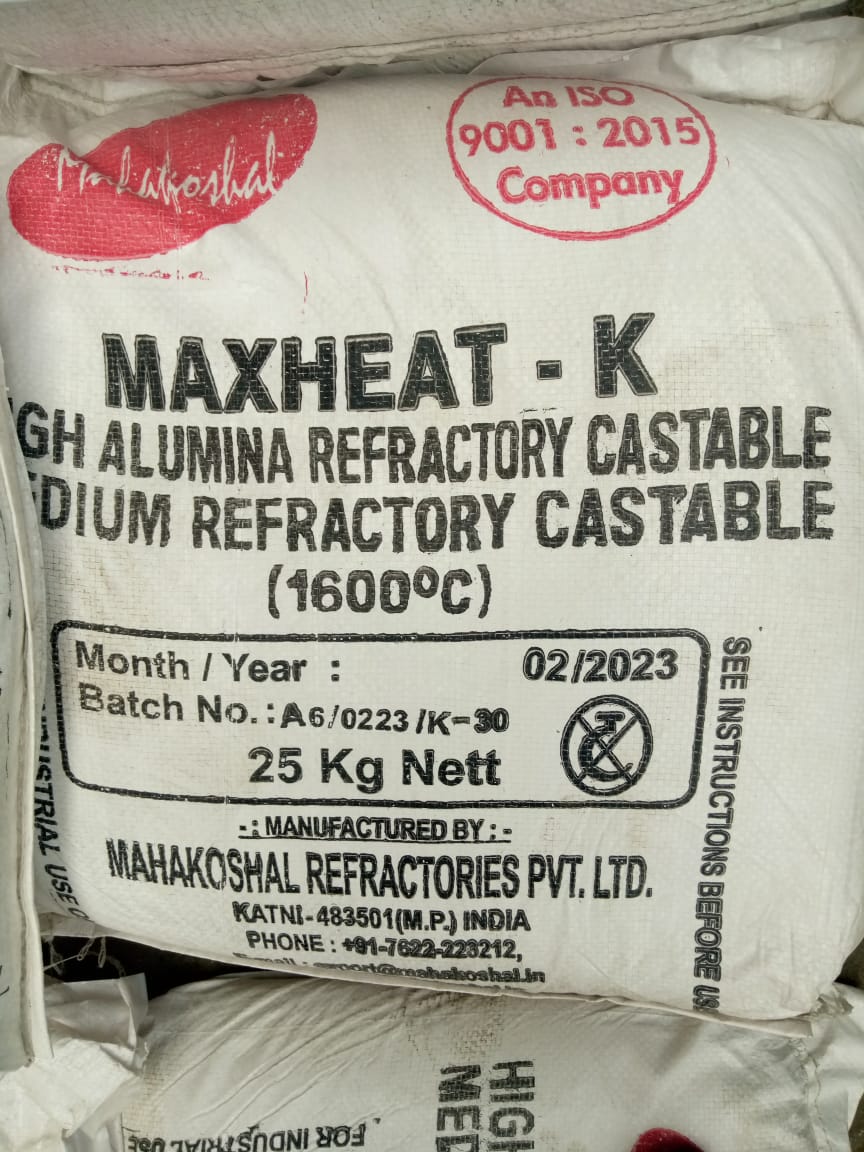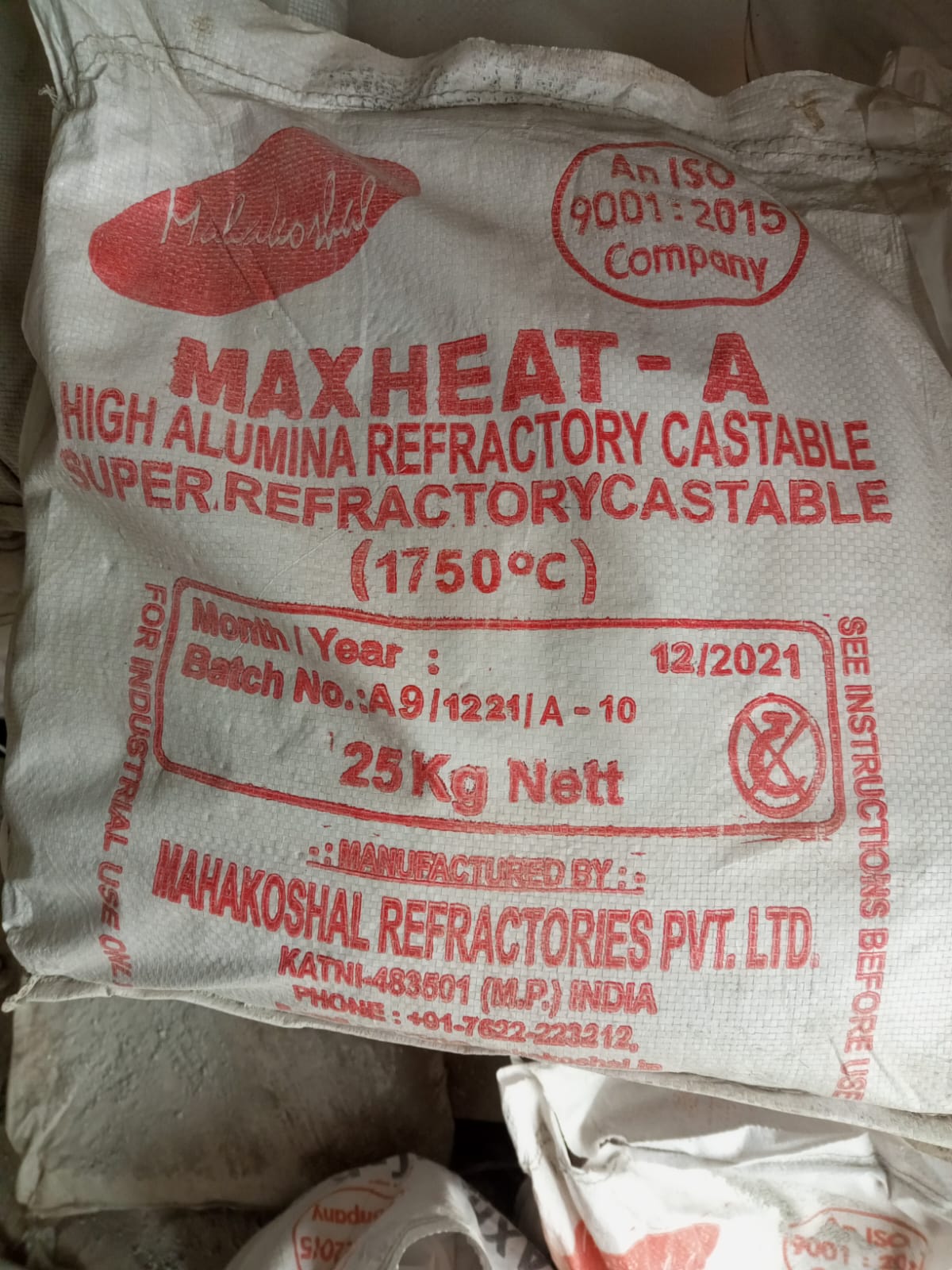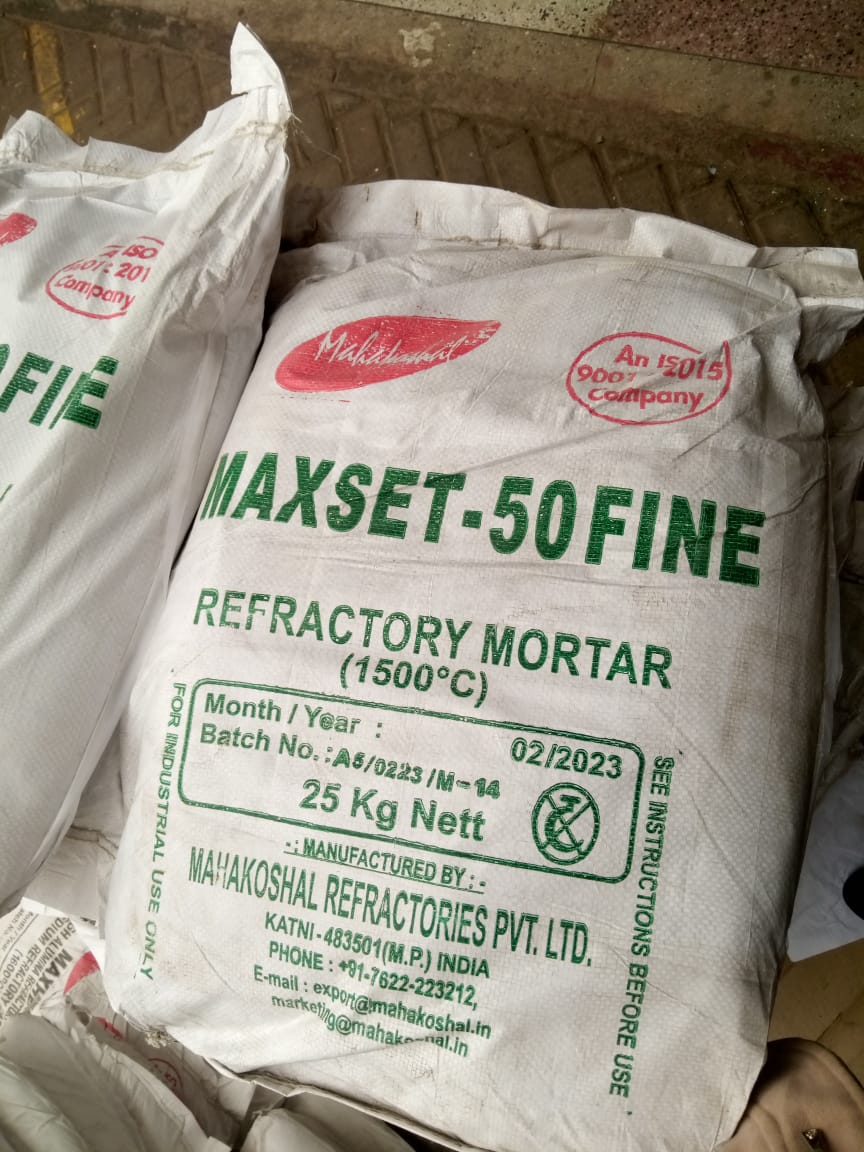FIRE PROOF REFRACTORY CEMENT IN EAST AFRICA
Insulation World Kenya Limited is the leading supplier of fireproof cement also known as High Alumina Refractory Castable Cement in Nairobi Kenya, Kampala Uganda, Tanzania, Kigali Rwanda, Juba South Sudan, Burundi and DRC Congo. We have both medium Alumina Content(56% – 60% alumina content) and high Alumina content Castable cement (90% alumina content) for various industrial applications in Eastern Africa.
Our Major Brands of Fire Cement are as below:
- Super Refractory Castable Maxheat A 1750 Degrees Celsius 25 Kgs
- Medium Refractory Castable Maxheat K 1600 Degrees Celsius 25 Kgs
- Refractory Mortar Maxset 50 Fine (Fire Clay) 1500 Degrees Celsius 25Kgs
- Fondu Cement Fine Refractory Castable Max50 1000 Degrees Celsius 25 Kgs (Fast Drying Refractory Castable)
Get in touch with us to place order through +254 722 401 175 or email us via info@insulationworldkenya.co.ke
CC: insulationworldkenya@gmail.com
What is Refractory Cement (Fireproof Cement)?
Refractory cement /fireproof cement /fire cement contains high alumina content and other properties that make it gain thermodynamic properties suitable for high temperature conditions. The fire cements are made with minerals like aluminium oxide to bind the coarse aggregates in the cement thereby increasing the thermodynamic properties of the cement, making temperature resistant and good formability.
Castable refractory cement has chemical and physical properties used for creating heat-resistant structures that retain and insulate. Due to their high resistance to heat and thermal shock, you can use Castable refractory cement and other products to build kilns and furnaces. Refractory Castable can be used to create the monolithic linings within all types of furnaces and kilns.
Applications of Fireproof Cement in Nairobi.
The application of refractory cement in Kenya include:
- Incinerator walls, fences,
- Barbecues, fire drill areas, pizza ovens and other Industrial ovens
- Sewage and wastewater systems,
- Seaside projects, industrial floors,
- Agricultural buildings, lintels, sealing hinges
- Blast furnace, Foundries, Forge furnace, Tunnel kilns,
- Heat treatment furnace car tops, Electro-phosphorus furnace, Sock pit cover construction etc.
Types of Refractory Cements (fireproof Cement) in Kenya
There are various types of refractory cement in Kenya. Insulation World Kenya Limited supplies the 4 main types refractory cement in Kenya. These are Fondu Cement Max50, Maxset 50% Fine (Mortar/Fire Clay), Maxheat K and Maxheat A. The Four types of cement are classified according to their alumina content which determines the range of temperature which they can withstand.
1. Maxheat K -1600°C (60%-Alumina)

One of the most common refractory cement (fire cement) in Kenya is Maxheat K. It is premixed refractory compositions which can cast into any require shape and size. It is mostly preferred due to its high thermal and shock resistance.
MaxHeat K Specifications
- Material: – Refractory Castable
- Type: – 56% Min – 60% Max Alumina Dense Castable
- Nature of Bond: – Hydraulic
- Installation: – Vibration Casting
- Service Temperature: – 1600°C
- Maximum Grain Size: – 5 mm
- Water required for casting: – 11 to 12.5%
Applications of Maxheat K
Maxheat K fire cement in Kenya is applicable in General purpose uses, Blast furnace, Foundries, Forge furnace, Tunnel kilns, Heat treatment furnace car tops, Electro phosphorus furnace, Sock pit cover construction etc.
2. Maxheat A – 1750°C

Maxheat A is a Castable cement in Kenya suitable for high temperature applications. Just like Maxheat K It is premixed refractory compositions which can cast into any require shape and size. It is mostly preferred due to its high thermal and shock resistance.
MaxHeat A Specifications
- Material: – Refractory Castable
- Type: – 88% Min – 90% Max Alumina Dense Castable
- Nature of Bond: – Hydraulic
- Installation: – Vibration Casting
- Service Temperature: – 1750°C
- Maximum Grain Size: – 5 mm
- Water required for casting: – 9 to 11%
Applications of Maxheat K
Just like Maxheat K fire cement in Kenya, Maxheat A is applicable in General purpose uses, Blast furnace, Foundries, Forge furnace, Tunnel kilns, Heat treatment furnace car tops, Electro phosphorus furnace, Sock pit cover construction etc. However, its service temperature is higher than that of Maxheat K.
3. Maxset 50 Fine (Fireclay/Mortar) – 1500°C

Refractory cement is used for building brick or stone fireplaces, barbecues or other installations which are subjected to intense heat. While refractory cement is similar to standard cement in how it is mixed, it differs significantly from standard cement in the use of one ingredient. Rather than using Portland cement for a cementing agent in the mixture, refractory cement uses a compound called calcium aluminate instead. This provides the heat-resistant properties needed.
Refractory mortar is a specially engineered mixture of sand, calcium aluminate, cement, and fireclay. It is used to lay firebrick in places that are exposed to extremely high temperature. The refractory mortar is utilized only to build fire places and shall not be applied on hot faces.
Mortar, which is a mixture of water, cement, and sand, has a higher water-to cement ratio than concrete. It has a thicker consistency which makes it a great adhesive and bonding agent for bricks and tiles. Mortar mix can be used for construction and repair of brick, block, and stone for barbecues, pillars, walls, tuck-pointing mortar joints, and planters.
4. Max-50 (Fondu Cement)

CIMENT FONDU® is a calcium aluminate-based hydraulic binder and contains calcium silicates, as opposed to Portland Cements. Its has the properties of high early strength and good refractoriness.
Fondu Cement Properties
- High temperature resistance (up to 1000°C)
- Has 3 to 30 minutes setting
- Corrosion Resistance (pH ≥ 4)
- Suitable in very temperatures (-10°C)
- Quick activity resumption (activities can be resumed after 6 hours
Fondu Cement Applications
Fondu cement in Kenya is applied in various places such as incinerator walls, fences, barbecues fire drill areas, sewage and wastewater systems, seaside projects, ovens, industrial floors, agricultural buildings, lintels, sealing hinges etc.

